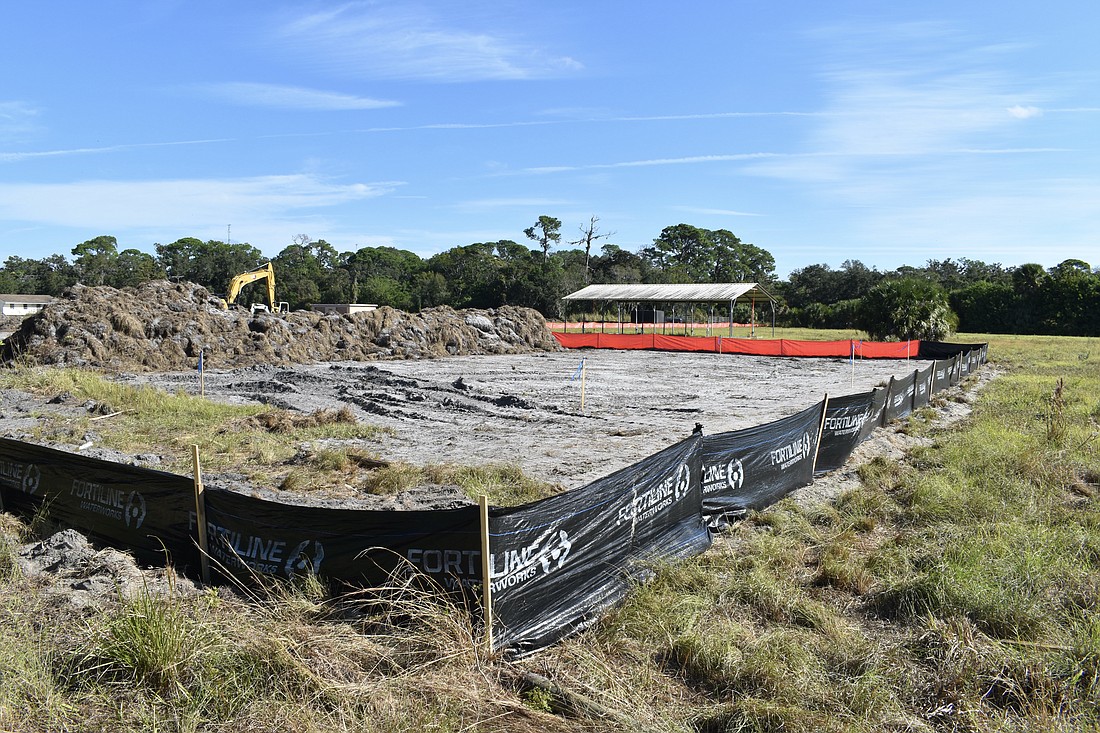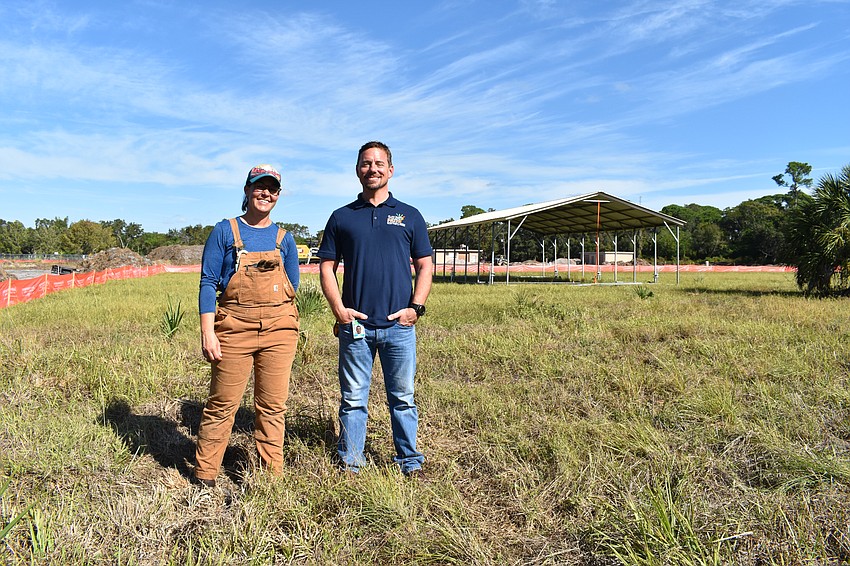- April 14, 2025
-
-
Loading

Loading

When the Crowley family leased the property for McIntosh Middle School, which was founded in 1962, there was a condition.
The family, who helped offer agricultural instruction in the early school system, stipulated that a portion of the land be set aside as farmland for the benefit of students.
It is a mission Farm to School Coordinator Kate Traugott said the newly begun Farm Renovation Project is intended to maintain by reimagining the farmland near McIntosh Middle as The Farm.
Over time, the buildings on the property have seen damage from everything from termites to hurricanes, so the district took up the responsibility of continuing the project for further generations, she said.
Traugott said the property, which is located in the suburbs of Sarasota north of Bahia Vista Street between McIntosh Road and Honore Avenue, offers a valuable resource for students, many of whom are generations removed from the ability to experience farming in daily life.
Students start out at the farm with a sense of curiosity as they take in a familiar place, Traugott said, but as they progress, they learn to solve problems critically and develop a sense of confidence in what they can achieve themselves.
However, student activity has ceased on the property for now, as construction work takes over the scene.
The $6 million renovation of the 40-acre property has involved the demolition of three barns, with one student-engineered barn moved outside the construction zone.
The infrastructure will be replaced with a large greenhouse with hydroponic and aquaponic systems, a large covered arena, a cattle barn and a swine barn totaling about 50 stalls, in addition to a food science lab and demonstration kitchen.
The project is set for completion in fall 2024 and will serve students from pre-K to 12th grade, throughout the county.
Tripp Jennings, the assistant director of Career and Technical Education and the project’s lead, said the property is a unique offering within the state of Florida.
He said while other schools in the state contain farms, as far as school district staff can determine, there is no other location of a similar size open to all of the students within a district.
The space will also be open to the wider community.
He emphasized that there are numerous opportunities for all students to benefit from the space, which is designed to enhance membership in Future Farmers of America and 4-H.
“We would like to see every student before they leave fifth grade, coming here at least once and then again, before they leave eighth grade, and again before they graduate,” he said.

The site will enhance classroom instruction beginning with Pre-K students, he said, with students visiting to experience the sights and smells.
However, it will also offer opportunities related to careers in technical education.
This means students can learn about areas important to various fields, including irrigation systems, electrical safety inspections, construction, advanced manufacturing of farm tools and digital campaigns and other multimedia initiatives.
The farmland has been used by students to raise animals to show at the Sarasota County Fair and beyond, while the new covered arena will offer them a place to practice showing their animals, in addition to fulfilling the role of hosting events.
Traugott calls raising an animal an empowering experience for students because they start with a small calf and then grow it to eventually lead a 1,200-pound cow that they have trained themselves.
The property also offers students the ability to learn about the growth of plants.
Traugott calls the material, which features best practices and methodology, “really in depth.”
It also ties in to another important aspect of the operation — the ability for the food to be offered in the district’s school cafeterias, an initiative the renovation plans to increase.
Jennings said this is an important part of the facility’s educational mission because when people understand where their food comes from, they tend to make better nutritional choices.
Students will be supervised by educators, who will ensure they are overseeing projects appropriately complex for their skill level and safety.
Yet the use of The Farm won’t be limited to students, Jennings said. It’s also for the community. The facility will host events, such as seminars, for the general public.
In the spring, the first phase of the project, including the two animal barns, is expected to be complete, at which point some student projects will commence. The construction is then expected to continue until fall 2024.
The project is estimated to cost $6 million, and is being funded through a combination of county and federal funding, and a state appropriation has been requested.
“We're trying to keep the education and opportunity alive because even if (land) gets developed, agriculture is still a major impact on the economy, textiles, clothing, medicine, paper, almost everything that we do,” Jennings said.